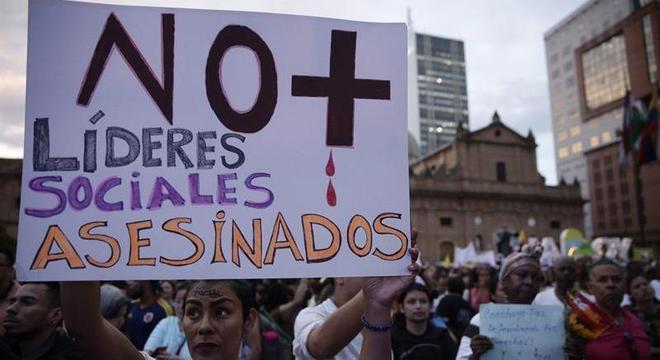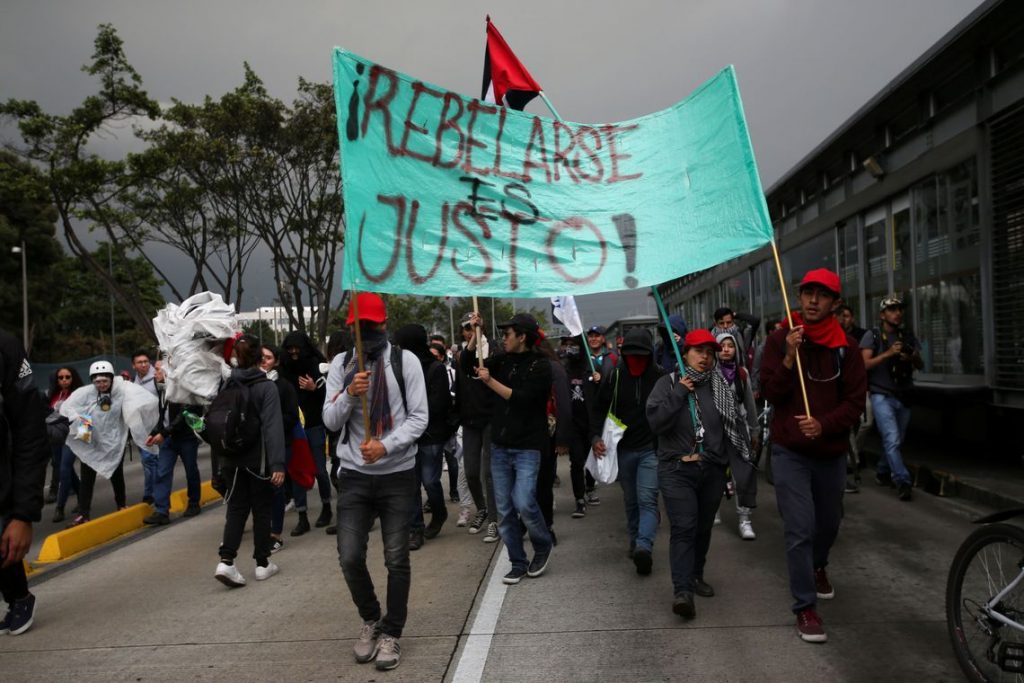RIO DE JANEIRO, BRAZIL – A large pot-banging protest in Colombia had been scheduled for January 21st, at 5 PM. However, demonstrations had already been witnessed in several cities since the morning. Protests are against the murder of at least 20 social and indigenous leaders in the first 20 days of 2020, among other demands.
According to the United Nations (UN), 107 human rights activists were killed in Colombia in 2019.

The organizers of the protests also demand compliance with the Peace Agreements reached between the Revolutionary Armed Forces of Colombia (FARC) and the government. They accuse the government of failing to strictly implement the agreements made at the end of the guerrilla period, which included economic and social plans for the regions most affected by the conflict.
The country has been experiencing protests since November 21st last year. After the year-end festivities, which represented a month-long break for President Iván Duque, the population is back on the streets, now with other demands. The march is named 21E and refers to January 21st (enero, in Spanish).
According to Diógenes Orjuela, president of the Unitary Workers Central of Colombia, the January 21st demonstration marks two months since the protests began and demands four specific measures from the government. “We are going to draw attention to the murders of social leaders, which is macabre; to the illegal actions by the army; to the false positives, which re-emerge on the national stage; and to the repression and action of the EMSAD (Mobile Anti-Riot Squad of the Colombian Police) in connection with the protests,” said the union leader.
The “illegal Army actions” to which Orjuela refers consist of accusations of illegal phone interceptions, carried out in army bases, against journalists, legislators, governors, military officials, among others. The cases of ‘false positives’ refer to the involvement of members of the Army in the killing of civilians and other extrajudicial executions, counted as deaths in combat.
The protests were called by the National Strikes Committee, which includes different movements, student and workers’ organizations. The last meeting between the government and the Committee took place on December 17th and the parties failed to reach an agreement.

The dialogues are part of the Great National Conversation, a string of meetings of government representatives with academics, civil society organizations, international organizations, and political parties, to seek solutions to the crisis affecting the country.
The National Strikes Committee, which claims abuse and excessive use of force by the police, wants the end of the ESMAD (Anti-Riot Mobile Squad) and the review of security policies.
According to Diego Molano, director of the Presidency’s Administrative Department, and appointed by President Duque to coordinate the National Conversation, the Committee is demanding something that exceeds the Executive’s powers.
“We are completing the point-by-point examination of the document [the result of discussions with sectors of civil society and experts] to determine its implications. In some cases, the demands may seem disproportionate, unfeasible or beyond our remit. We must analyze them so that we can advance with solutions, with the premise that the State can not be negotiated and that it must be clear that there are certain issues that can not be discussed only within the Committee because they are related to other sectors, which must also be heard,” Molano said.
President Iván Duque is expected to finalize the Great National Conversation by March 15th.
Source: Agência Brasil

